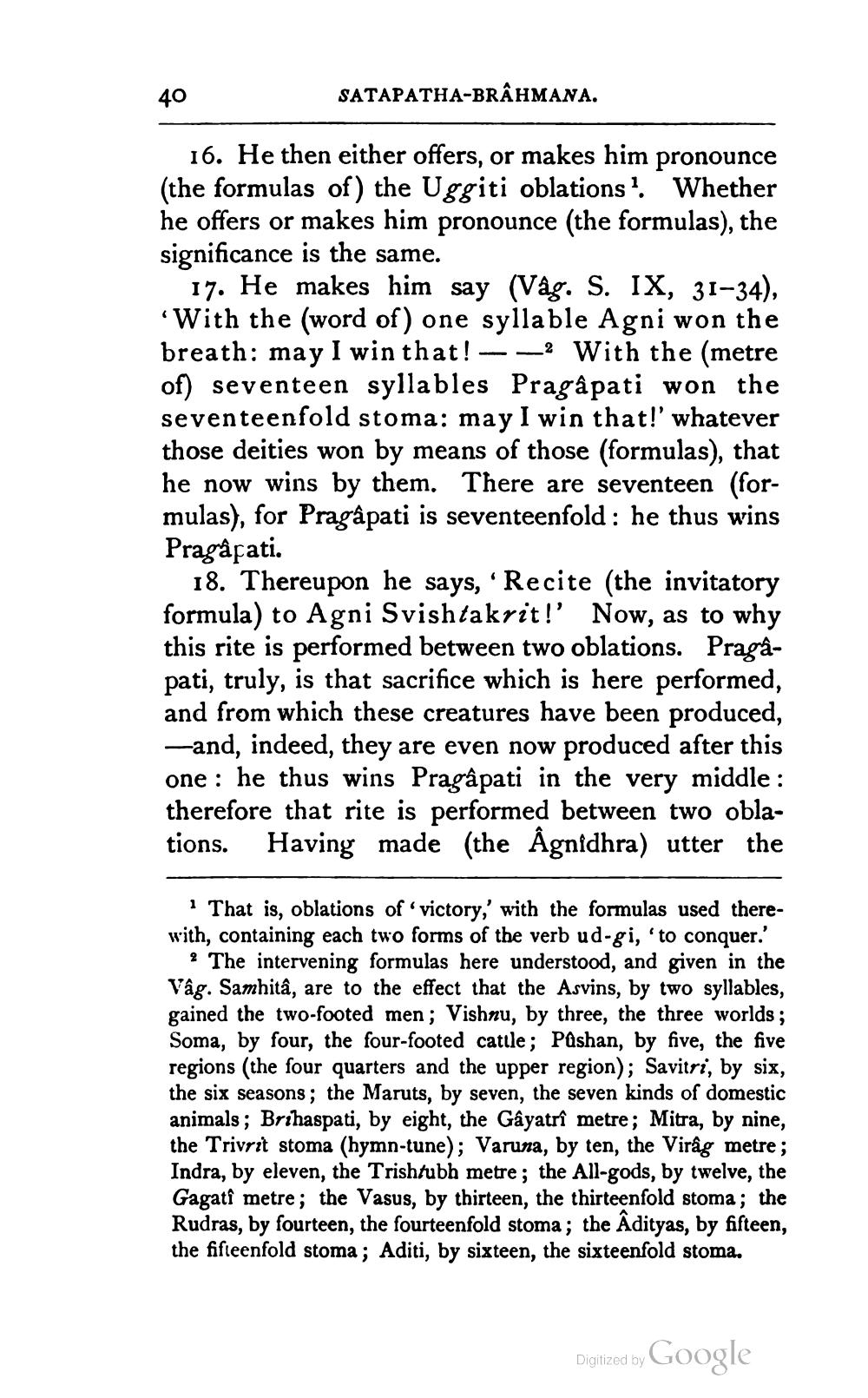________________
SATAPATHA-BRAHMANA.
16. He then either offers, or makes him pronounce (the formulas of) the Uggiti oblations'. Whether he offers or makes him pronounce (the formulas), the significance is the same.
17. He makes him say (Vâg. S. IX, 31-34), 'With the (word of) one syllable Agni won the breath: may I win that! - With the (metre of) seventeen syllables Pragâpati won the seventeenfold stoma: may I win that!' whatever those deities won by means of those (formulas), that he now wins by them. There are seventeen (formulas), for Pragâpati is seventeenfold: he thus wins Pragâpati.
40
18. Thereupon he says, 'Recite (the invitatory formula) to Agni Svishtakrit!' Now, as to why this rite is performed between two oblations. Pragâpati, truly, is that sacrifice which is here performed, and from which these creatures have been produced, —and, indeed, they are even now produced after this one he thus wins Pragâpati in the very middle : therefore that rite is performed between two oblations. Having made (the Âgnidhra) utter the
1 That is, oblations of 'victory,' with the formulas used therewith, containing each two forms of the verb ud-gi, 'to conquer.'
2 The intervening formulas here understood, and given in the Vâg. Samhitâ, are to the effect that the Asvins, by two syllables, gained the two-footed men; Vishnu, by three, the three worlds; Soma, by four, the four-footed cattle; Pûshan, by five, the five regions (the four quarters and the upper region); Savitri, by six, the six seasons; the Maruts, by seven, the seven kinds of domestic animals; Brihaspati, by eight, the Gâyatrî metre; Mitra, by nine, the Trivrit stoma (hymn-tune); Varuna, by ten, the Virâg metre; Indra, by eleven, the Trish/ubh metre; the All-gods, by twelve, the Gagatî metre; the Vasus, by thirteen, the thirteenfold stoma; the Rudras, by fourteen, the fourteenfold stoma; the Âdityas, by fifteen, the fifteenfold stoma; Aditi, by sixteen, the sixteenfold stoma.
Digitized by
Google




